Kubrick: Barry Lyndon part 9
Scene 92-96. Barry’s plans for becoming a gentleman have come to nothing. He still lives in a nice house, still has access to money, still has a beautiful wife (who apparently loves him more than he deserves) but he will never be a true gentleman. His violent streak — that is, his tendency to deliver violence on his own terms, rather than through money or an intermediary — has put an end to that dream forever.
Without social advancement, what does he have left? The answer, oddly enough, is “love.” Barry loves his son Bryan with great abandon. We’re treated to the longest “montage” yet in Barry Lyndon — five scenes of Barry interacting with Bryan and being a loving, indulgent father. He fishes with him, reads to him, teaches him how to fence, plays croquet with him, and takes him horseback riding. The narrator deepens the images with background on how Barry feels about the boy, and also spoils their love by announcing that the boy is doomed to die young.
There’s another way to read the montage, of course — Barry wants social advancement, and he threw that chance away when he kidney-punched his stepson in a packed recital hall. So in order to achieve the gentlemanly status he craves, he employs the oldest trick in the book: he chooses to achieve his goal through his progeny. And while that reading is more cynical, it also indicates that Barry, at this stage of his life, has at least begun to think outside himself, to understand life on a more cosmic level, to see himself as part of a continuum.
Scene 97. Barry buys a horse for Bryan. He haggles a little with the owner. We were just told that Barry has been greatly overspending Lady Lyndon’s money, but it appears the horse isn’t too great a cost for an estate like the Lyndon’s. Or rather, Barry’s profligacy points to another aspect of money in the Barry Lyndon universe: everyone is happy to give you credit if they assume you’re good for it. Even the Chevalier de Balibari didn’t demand money from deadbeat royals until they failed to live up to their promissory notes. The whole monetary system seems to just kind of glide by on assumption and good will, handshakes and promises. Cold currency seems to be the domain only of the poor. The fragility of this worldview will eventually become starkly clear to Barry.
Scene 98. The Lyndon family sits down to dinner. The family at this point are: Barry, Bryan, Lady Lyndon, Barry’s mother, Reverend Runt, and Graham, the accountant. The scene is presented as a small group in a huge room, to show how reduced Barry is in his fortunes. And yet the opening of the scene is almost a kind of dance number, as the house’s servants enter, surround the family and present food in their graceful, synchronized manner. Which raises the question, are the servants even paid? Or do they simply count themselves lucky to live in a great house and get to wear nice clothes and powdered wigs?
At dinner, Bryan guesses that Barry has bought him a horse for his birthday. Barry tries to maintain the traditional parental deception regarding surprises (a gentle statement of the theme of deception), but he loves Bryan too much (deception countered by love). Barry and Lady Lyndon forcefully instruct Bryan not to ride the horse without supervision (Barry threatens to whip him, folding the theme of violence into the scene), all but announcing what is about to happen.
Scene 99. As Barry shaves, Reverend Runt appears to tell him the news that Bryan has snuck out of the house early. Runt’s attitude in this scene fascinates me: his hostility toward Barry, and his refusal to accept responsibility for his charge, indicates that he actually hopes that something bad has happened to Bryan, or at least that Barry will be forced to chastise the child.
Scene 100. Barry rushes to Bryan, but he’s too late, Bryan has been seriously injured from being thrown from his horse. (Shown in a rare insert, shot by a second-unit director, in a style utterly unlike the rest of the movie.) Barry is, of course, quite upset, but Bryan’s first thought is “You won’t whip me?” The movie doesn’t lean into the beat, but it’s worth noting that Barry’s lesson of the world, that authority is created through violence, has passed down to his son, even in the moment of his impending death.
Scene 101. Bryan lies on his deathbed. He asks Barry if he’s going to die. Barry assures him, with the most basic of parental lies, that he is not. Bryan knows the truth of the matter, but doesn’t call out Barry on his deception. Lady Lyndon is there as well, on the other side of the bed. Even at this moment, when Barry and Lady Lyndon are losing the one thing they have in common, the one thing that brought them together, they remain separate. Bryan senses the tension, and asks the two of them to hold his hands, as he makes them promise “don’t quarrel, so that we may be together” in the afterworld. They agree, of course, in what is kind of a climax of the theme of deception in the movie: two parents agree not to fight to honor their dying child so that they can all go to Heaven. It’s deception atop deception atop the biggest deception of all.
Once Bryan gets his promise, he asks Barry to tell his famous war story again, and Barry indulges him one last time with yet another lie. Does Bryan, on some level, know that Barry’s war story, which he tells exactly the same way each time, down to the same wording, is only a fairy tale, a bedtime story? Does he suspect that his father is a good-hearted liar? In any case, the scene puts a button on the lies-upon-lies scene with a callback to an earlier lie.
Scene 102. Bryan’s funeral, and we see that the same sheep-pulled carriage from his birthday party, the scene that put a button on the “Bryan-is-a-happy-child” montage, is now back, with the same sheep, carrying Bryan to his grave. In a movie full of cold, cruel ironies, this is perhaps the cruelest.
Scene 103. The narrator informs us that Barry, following Bryan’s death, starts to drink too much, and we’re treated to a scene of Barry’s mother, and two servants, removing a sleeping Barry from a chair somewhere within the house. We’ve seen a number of seated, slumbering men in the movie up to this point, but now it is Barry’s turn, which raises the question of: are all the men we’ve seen drunkenly sleeping in public mourning the death of someone near and dear to them?
Scene 104. Lady Lyndon, meanwhile, turns to religion in her mourning, and falls under the influence of Reverend Runt. Lady Lyndon, probably the most innocent character in the movie (except Bryan, of course), has no agenda of her own in the narrative. As much as Barry is a reactive protagonist, Lady Lyndon doesn’t even have a goal to pursue. This scene is one of only a handful that concentrate on the story from Lady Lyndon’s point of view, and its goal is not so much to create a minor protagonist but to develop Runt as an antagonist for Barry, as we shall see.
Scene 105. Barry’s mother calls Reverend Runt into the accounting room to fire him. Bullingdon is gone and Bryan is dead, there’s no need for a tutor in the house. Runt, clearly terrified at the idea of having to make his way in the world, insists that he’s needed for the spiritual care of Lady Lyndon. He and Mrs. Barry have ever-more-terse exchanges, trying at first to keep up the appearance of gentility, but ultimately laying bare the seething class resentment on both sides. Runt, for all his fake piety, is nothing more than a hanger-on, incapable of and unqualified for life outside the great house, no better than Barry himself, or Mrs. Barry, who’s firing him. Why the movie briefly becomes about Reverend Runt will be revealed shortly.
Scene 106. Lady Lyndon, in her grief, attempts suicide by strychnine. The accountant, Graham, happens upon her, and, just as the movie briefly became about Runt, it now becomes briefly about Graham.
Scene 107. Graham goes to see Lord Bullingdon, to alert him about the state of the household. That is to say, Graham and Runt, seeing their meal tickets endangered, go to the one man vain enough, and stupid enough, to empathize with them. Bullingdon, for his part, seems to have matured enough since his last appearance to understand that he made a fool out of himself the last time he showed his face at the great house. “I know I am despised, and quite justifiably so,” he says. But he also sees that there is a great deal of money at stake, and so begins the final act of the narrative, the tale of how Bullingdon, Runt and Graham conspire to take control of Lady Lyndon’s fortune.
Scene 108. Lord Bullingdon arrives at a club, early in the morning, to have a showdown with Barry. Perhaps the best-staged scene in a movie full of well-staged scenes, it follows Bullingdon’s progress as he enters the club, which has sleeping gentlemen in every chair, plus an old woman scrubbing the floor, and heads through the club, past many more sleeping gentlemen, and a few still-active card games, until it arrives in a conversation-piece worthy tableau of Barry slouched, out cold, in a chair with his back to a gaming table. Drinking and gaming, Barry’s two favorite pastimes, are brought together here at the end of his arc, where everything is spent, and the man we once beheld drunk asleep in the chair is now our protagonist. Bullingdon raps his cane on the floor to wake Barry up, to no avail. He has to take his cane and lift Barry’s head by the chin before Barry can wake up enough from his stupor to challenge him to a duel.
Scene 109. The final duel of Barry Lyndon counts as one of the greatest scenes in Kubrick’s work, an aria of creeping dread and suffocating suspense. Narratively, it’s completely straightforward: Barry and Bullingdon are in a barn, dueling under a set of rules that involves one shooter “going first” and the other, if they’re still alive, returning fire. Bullingdon wins the toss of a coin, but, shaking in fear, accidentally shoots his gun off while cocking it. That allows Barry (who we know to be a master with a pistol) a chance to eliminate Bullingdon from his life once and for all, but Barry fires into the ground. The terrified Bullingdon is startled for only a beat before he takes the opportunity to shoot again and hits Barry in the leg.
Our themes, again, are social mobility, violence, and love, and all three come together in this moment of Barry’s narrative. There is one thing Barry is good at, and that is violence. He’s used deception to gain his social status, but, once there, he found something he’d once said he didn’t believe in: love. Now that he’s lost his love, he sees the chance to redeem himself, the chance to be merciful to his enemy, even while handed the tool to rid himself of his enemy completely. Barry redeems himself for every shady, sideways, crooked scheme he used to get ahead when he chooses not to kill Bullingdon. On the other hand, from the look Barry gets on his face when Bullingdon chooses to take a second shot, he was fully expecting Bullingdon to recognize mercy when he sees it. Bullingdon, we see, is not as self-knowing as he announced himself earlier.
Scene 110. Barry is taken to a local inn and examined by a surgeon, who tells him he’ll need to lose his leg, in one of the few purely expository scenes of the movie.
Scene 111. Graham, Runt and Bullingdon ride back to the Lyndon estate, and we see that the past few scenes have all been a conspiracy that began when Mrs. Barry fired Reverend Runt. Whether or not Bullingdon felt so strongly about Barry’s presence in his ancestral home, and regardless of how he may feel about winning a duel in such a pathetic and mean-spirited way, Bullingdon now speeds home to his mother, plotting to get Mrs. Barry out of the house immediately and have Graham and Runt take over running the house. The duel scene showed how class is held in place by violence, and this scene shows the “mopping up” part of that idea, as it were, as the remnants of Bullingdon’s class war are swept out the estate door.
Scene 112. Barry, now without one of his legs, recovers in his dismal attic room and plays cards with his mother. The scene is a brutal bookend of the garden-house scene with Nora, the oversexed cousin now replaced by a dowager mother, and Barry gone from being a doe-eyed dope to a weary, cynical middle-aged man.
And what is Mrs. Barry thinking? Does she see any tragedy in her son’s narrative, or is she thinking “Well, you had a pretty good run, lad?”
Graham arrives, and Mrs. Barry receives him with grace and courtliness, even as her son lies legless beside her partly by Graham’s hand. Even in these circumstances, it seems, Mrs. Barry tends toward gentility when around her social betters.
Graham gives Barry an ultimatum: Lady Lyndon will give him 500 pounds a year, for the rest of his life, if he leaves England immediately and never returns. If he does return, he’ll be arrested and imprisoned for all the debts he incurred while he had the run of the Lyndon estate. And that, as they say, is that. As there is nothing tying Barry to the estate, certainly not the love of Lady Lyndon, he takes the deal.
Scene 113. Barry and his mother make their way to a waiting coach, as the narrator tells us what’s left of Barry’s life, ending with “He never saw Lady Lyndon again,” as the film freeze-frames on Barry getting into the coach. It’s an odd beat, partly because the freeze-frame device has gone completely unused up to this point, and partly because it hardly seems relevant that Barry never saw Lady Lyndon again. As far as the narrative is concerned, Barry hasn’t laid eyes on Lady Lyndon since Bryan died, and never loved her in the first place, why would it matter now if he never saw her again?
Scene 114. And finally, the final “bill-paying” scene. It’s interesting, and so very cold, that a narrative this full of passion (such as it is) ends with a scene of Lady Lyndon back in her place as the payer of bills. Her family now is Graham, Runt, and Bullingdon, all of whom hover around her, not in the accounting room now but in the middle of a grand, empty ballroom, and her life is just about signing checks. It begs for a narrative telling the story from Lady Lyndon’s point of view, the story of a young woman who is married, at a very young age, to a gouty older man, and then falls in love with a rakish young buck, who swindles her family fortune and leaves her with an accountant, a useless tutor and a clinging son. When Lord Bullingdon hands her that year’s bill to pay for Barry’s annuity, she gets a long-ago, far-away look on her face, one he instantly recognizes as the look of love lost. Bullingdon gets what he wanted (his mother’s full attention and his family fortune regained), but he still loses his mother’s heart, having been lost to the rogue who swindled her. The last image in the movie is her signature on the check, as our protagonist is reduced, finally, to an entry on an estate ledger. And if that were not cold enough, the epilogue card informs us that all of the characters in the story, rich or poor, ugly or beautiful, “are all equal now.” For time, and death, eventually erase us all from the ledger.
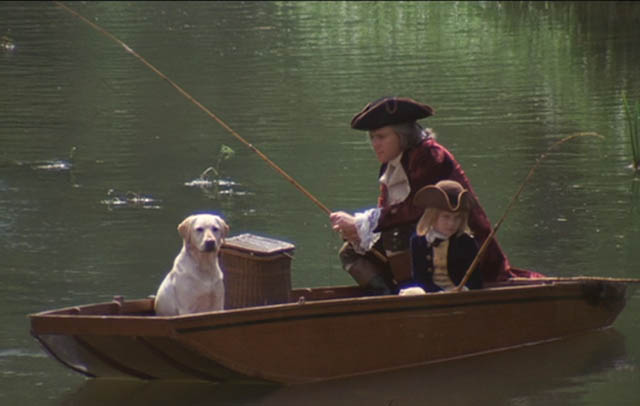
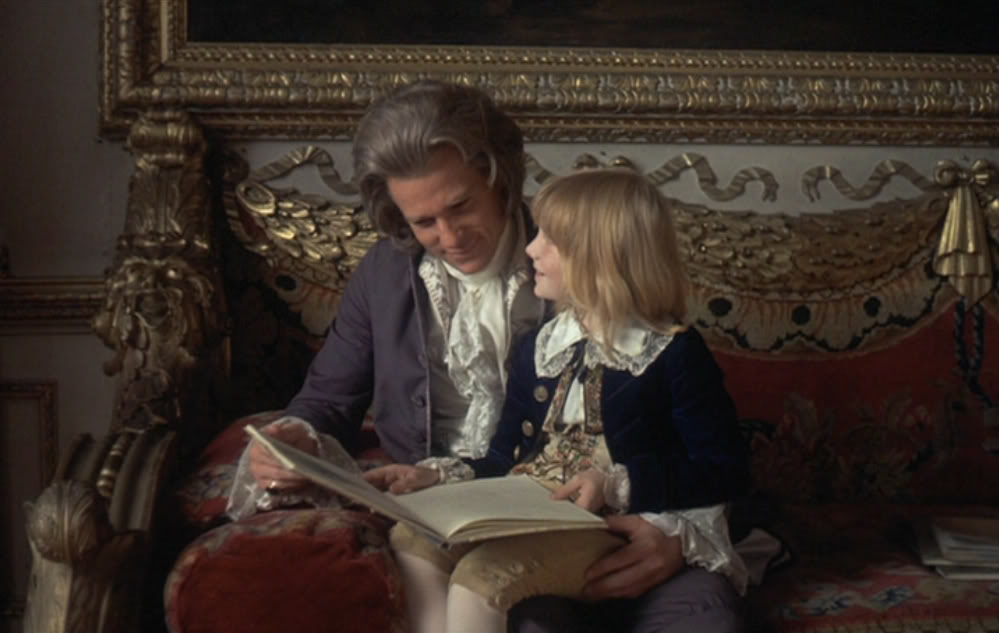
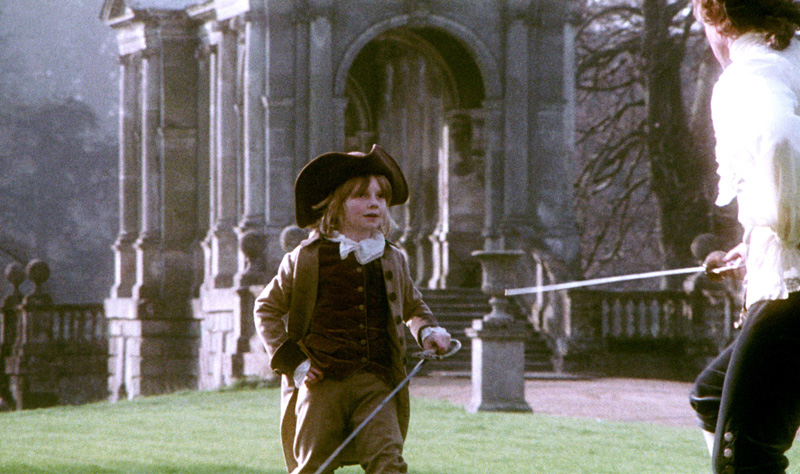
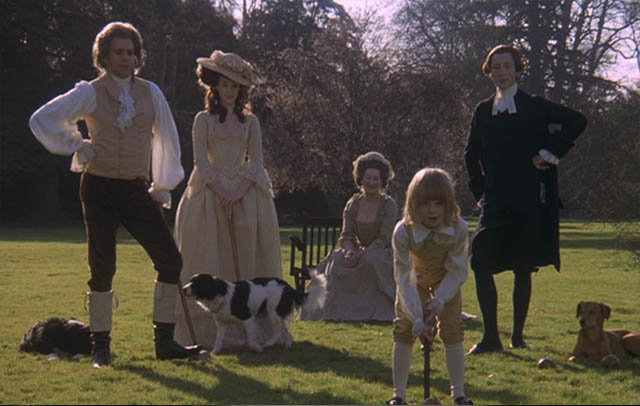
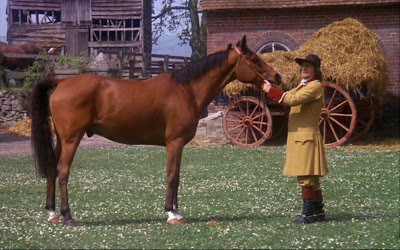
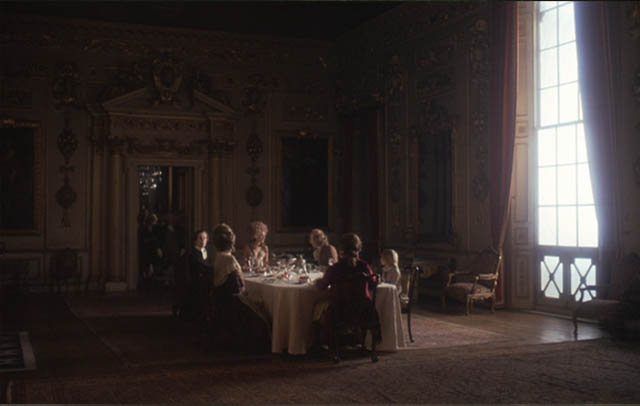
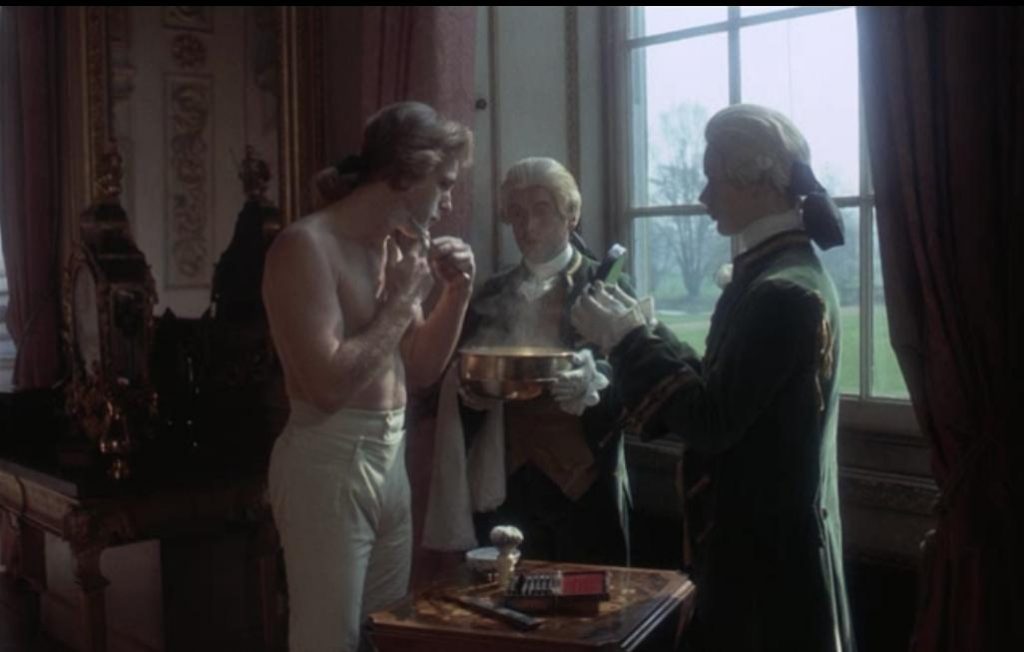
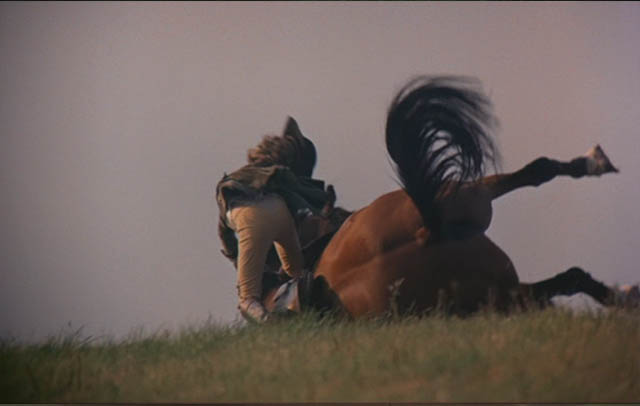

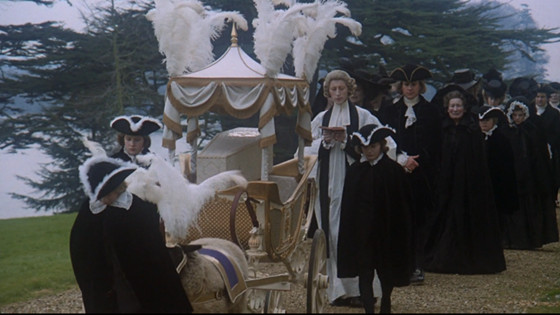

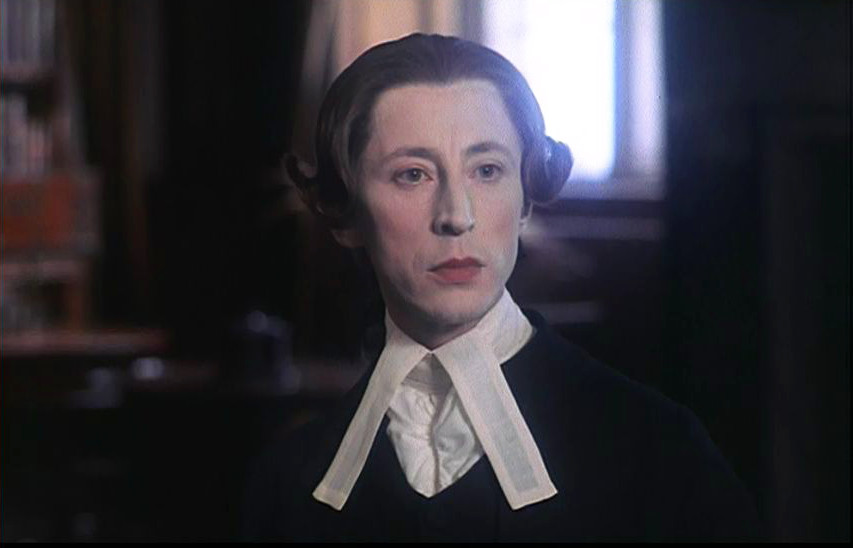
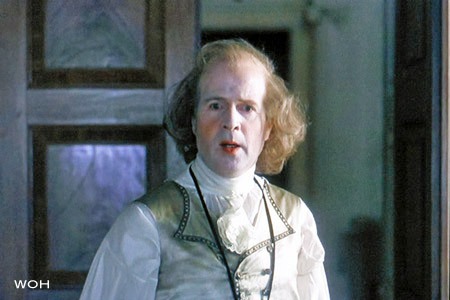

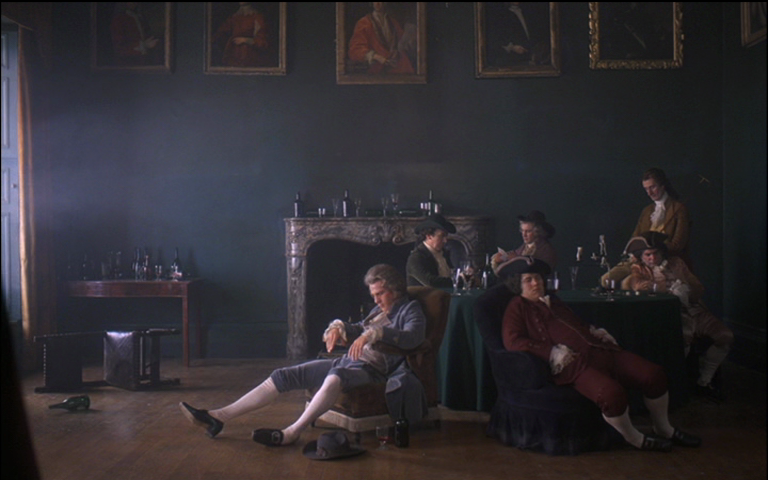
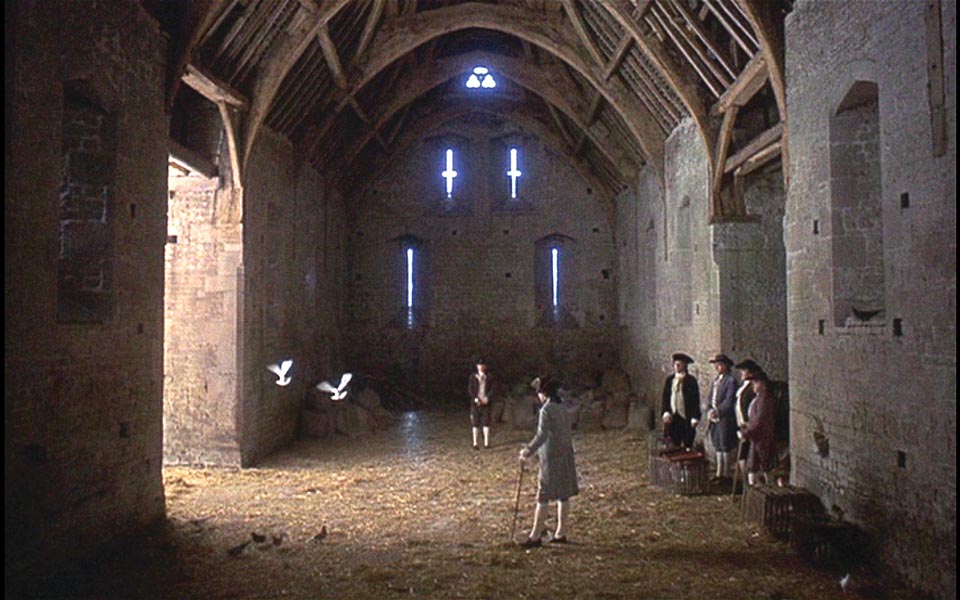
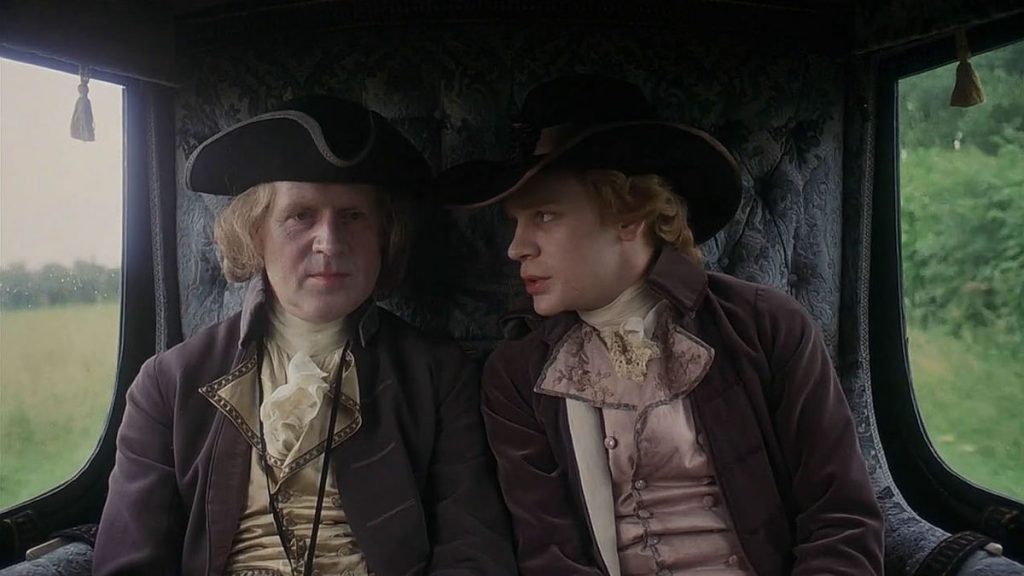
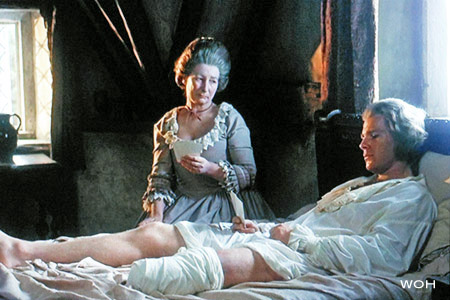

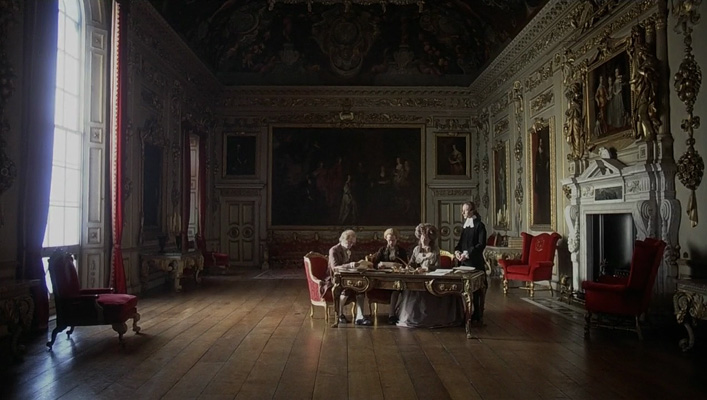
Have been loving this. Thank you.
I rewatched the movie in two halves while reading along. In between I threw on Spielberg’s Catch Me If You Can and found a lot of thematic parallels. Probably a complete coincidence but it made an enjoyable counterpoint.
Bryan Lee O’Malley
I find Catch Me if You Can oddly structured, but nowhere near as oddly structured as Barry Lyndon.
I hope you wrote this towards filling out your Kubrick pieces for an eventual ebook, in which case I’m excited to read more. I finally saw The Killing and Lolita last year in a double at the New Beverly, both of which were stunning. I haven’t watched Full Metal Jacket in many years. I want to revisit them all with your insights. I’m sure you’ve got better things to do, but thanks for keeping this up intermittently. I’m still out here refreshing the blog.
Happy holidays!